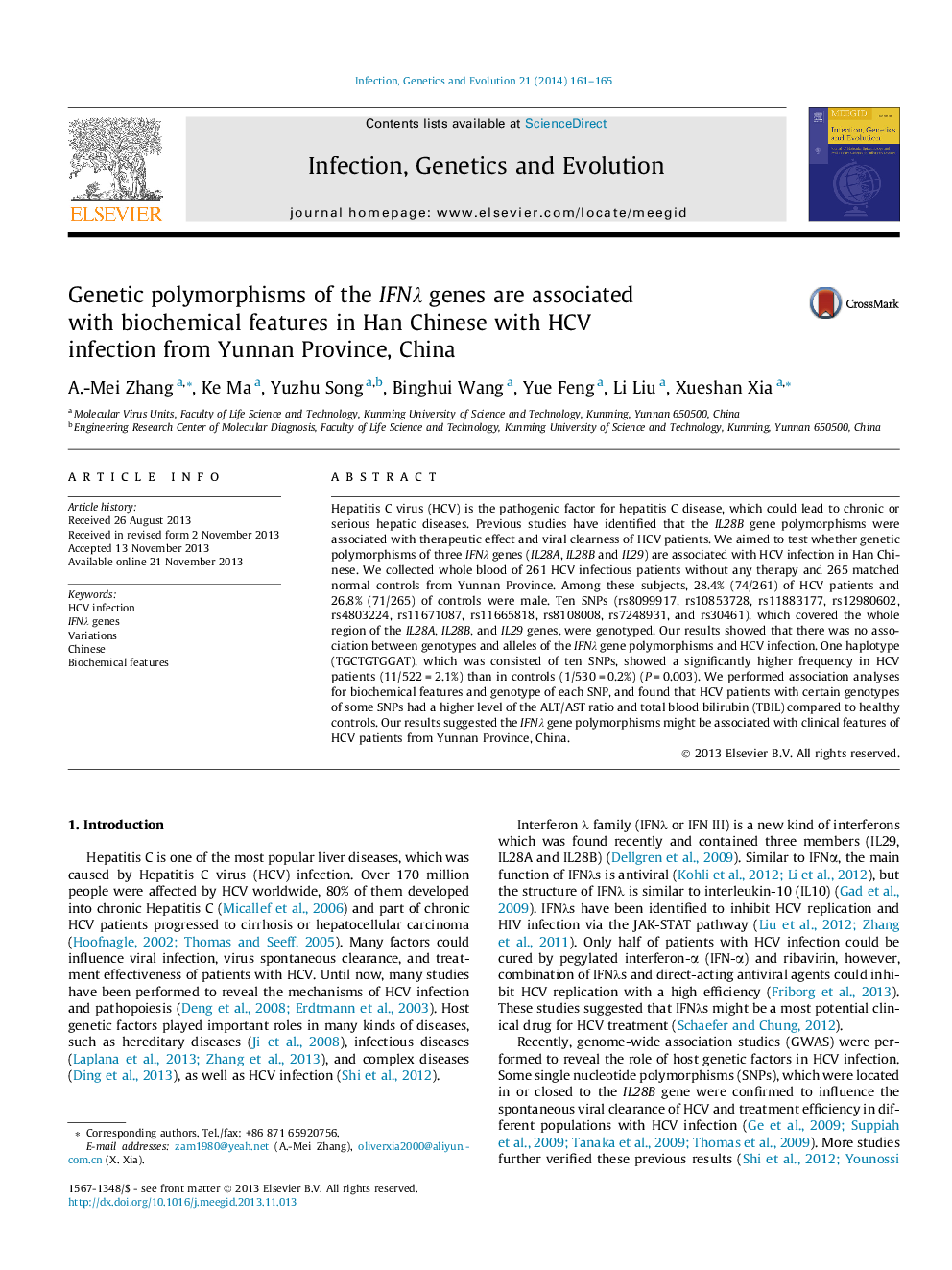| Article ID | Journal | Published Year | Pages | File Type |
|---|---|---|---|---|
| 5910190 | Infection, Genetics and Evolution | 2014 | 5 Pages |
â¢Genotypes and alleles of the IFNλ genes SNPs do not confer HCV infection.â¢One haplotype of the IFNλ genes may increase the risk of HCV infection.â¢The IFNλ gene SNPs are associated with biochemical features of HCV patients.
Hepatitis C virus (HCV) is the pathogenic factor for hepatitis C disease, which could lead to chronic or serious hepatic diseases. Previous studies have identified that the IL28B gene polymorphisms were associated with therapeutic effect and viral clearness of HCV patients. We aimed to test whether genetic polymorphisms of three IFNλ genes (IL28A, IL28B and IL29) are associated with HCV infection in Han Chinese. We collected whole blood of 261 HCV infectious patients without any therapy and 265 matched normal controls from Yunnan Province. Among these subjects, 28.4% (74/261) of HCV patients and 26.8% (71/265) of controls were male. Ten SNPs (rs8099917, rs10853728, rs11883177, rs12980602, rs4803224, rs11671087, rs11665818, rs8108008, rs7248931, and rs30461), which covered the whole region of the IL28A, IL28B, and IL29 genes, were genotyped. Our results showed that there was no association between genotypes and alleles of the IFNλ gene polymorphisms and HCV infection. One haplotype (TGCTGTGGAT), which was consisted of ten SNPs, showed a significantly higher frequency in HCV patients (11/522 = 2.1%) than in controls (1/530 = 0.2%) (P = 0.003). We performed association analyses for biochemical features and genotype of each SNP, and found that HCV patients with certain genotypes of some SNPs had a higher level of the ALT/AST ratio and total blood bilirubin (TBIL) compared to healthy controls. Our results suggested the IFNλ gene polymorphisms might be associated with clinical features of HCV patients from Yunnan Province, China.
